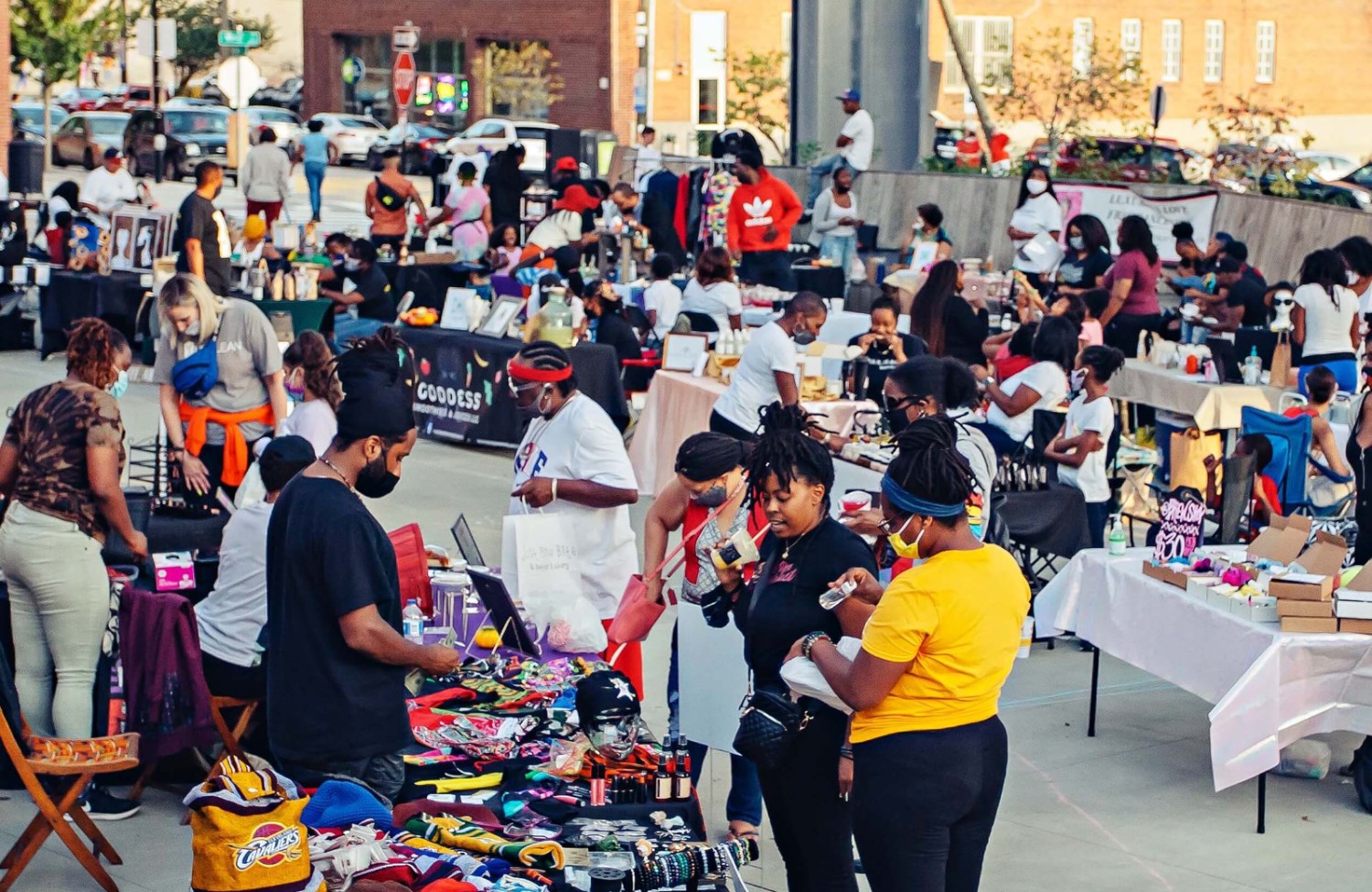The dictionary defines the word disproportionate as “too large or too small in comparison to something else.” To me, the following statistic starkly illustrates “disproportionate”: While Black Americans make up 13% of the nation’s population, they only account for 4% of our country’s wealth.
This racial wealth gap has persisted from generation to generation, rippling through all aspects of family life — the ability to own a home, pursue higher education, access health care or simply put food on the table. Many factors feed into this inequity, but by and large, Black Americans lack access to the financial opportunities and resources, such as income and capital, that build wealth.
Following the murder of George Floyd, Walmart doubled down on our commitment to advance equity in society. We prioritized addressing inequities in the nation’s finance systems (along with inequities in health, criminal justice and education systems) through business and philanthropic initiatives in collaboration with others. A group of Walmart leaders, through what we call Walmart’s Finance Shared Value Network, are working to use our business capabilities (for example, jobs, career paths, sourcing, business partnerships) to increase opportunities for diverse-owned businesses, empower associates to build generational wealth and expand access to financial services in communities.
At the same time, we at the Walmart.org Center for Racial Equity are complementing such efforts through philanthropic initiatives that aim to advance financial inclusion and equity for Black businesses. We believe this will not only help business owners and families build wealth, but also lift up entire communities, as Black businesses tend to hire from within their neighborhoods.
Like the factors contributing to the overall racial wealth gap, the issues facing Black businesses run deep. Early in my career, I had a front row seat in the world of Black business through my work at Black Enterprise. The publication’s founder, Mr. Earl G. Graves Sr., believed the American dream should not be determined by race. He spoke directly to Black business leaders to help them overcome unique and systemic issues. Later in my career, when I became an entrepreneur myself, I learned firsthand about those challenges. While leading my consulting agency, I saw my primarily-minority clients struggling to access capital, credit, expertise and networking. Such challenges have existed for centuries because of discriminatory laws and institutional roadblocks. That’s why it is so important to rethink the way we support Black businesses.
Working with other organizations, the Walmart.org Center for Racial Equity aims to make it easier for entrepreneurs in the retail industry to strengthen and scale their companies, in turn helping to sustain their communities across the country. Only 5% of Black Americans hold business equity — a key driver of wealth — compared to 15% of white Americans, yet business ownership has the potential to build wealth for families and communities. That's why the Center, drawing on Walmart’s retail industry expertise and connections through our Finance Shared Value Network, will focus our philanthropic investments on strengthening entrepreneurship and Black-owned businesses in retail.
Our initial tranche of $2.9 million in grant investments will support organizations providing Black business owners with education, resources and training programs that open doors to networks and sources of financial and social capital. These investments include the following:
- Winrock International will serve 200 Black-owned businesses across Arkansas, Louisiana and Mississippi with education on accessing capital and sustaining growth.
- SEED SPOT, a business accelerator, will provide training to Black-owned businesses in North Carolina on core skills retail providers need — including marketing, pricing and supply chain management — in partnership with Black Dollar Corp, a Black-owned platform that provides commission-free retail space.
- The Washington Area Community Investment Fund (WACIF) will support beauty entrepreneurs in the Washington, D.C. area through a business accelerator program to advise underserved entrepreneurs and deploy flexible capital to independent, Black-owned beauty brands. As part of the program, WACIF will provide a makerspace with the help of Shea Yeleen.
- SoGal Foundation will launch a new national training program to help Black entrepreneurs connect to capital. The Black Founder Retail Catalyst Fellowship program will help 60 Black female and non-binary business owners access capital, mentorship and a network of peers in the retail industry.
Reducing the racial wealth gap will take time, so this will be a journey. But in the long run each Black business owner can become part of a rising tide that lifts other boats — through their financial success, we hope to see more economic opportunity in the communities where they live and work. We will continue to learn through our work with these organizations and others, and we plan to use the lessons learned from these investments to guide our support of Black-owned retail businesses going forward.




